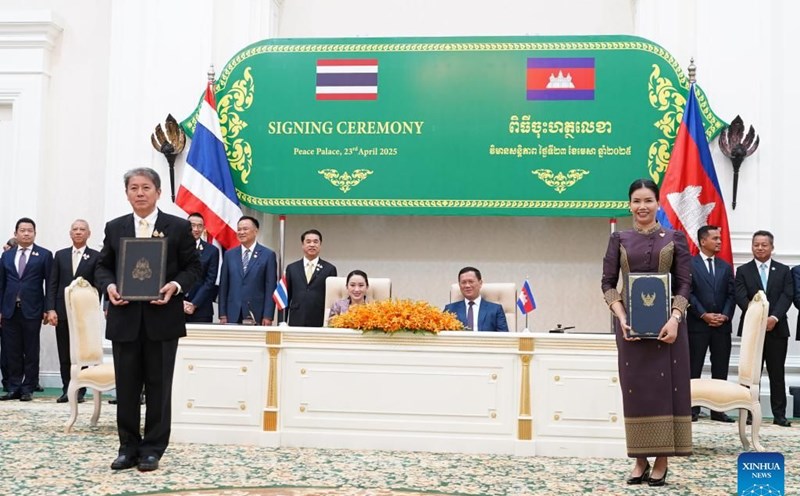On June 15, Cambodian Prime Minister Hun Manet announced on his personal Facebook that the country had submitted an official petition to the International Court of Justice (ICJ) to request support in resolving the border dispute with Thailand.
The incident comes amid rising tensions following an armed clash between soldiers of the two countries in an area known as the "Three Corners" - which borders Cambodia, Thailand and Laos - on May 28. A Cambodian soldier was killed in the shooting.
Both sides have declared their defensive actions and have agreed to move forces to avoid direct confrontation.
Thailand has recently tightened border control with Cambodia. Cambodia also put the military in a state of "high alert" on June 14 and banned the broadcast of Thai dramas on television and at domestic cinemas.
According to Prime Minister Hun Manet, the ICJ filing concerns four dispute areas, including the location of the conflict in May and three ancient temples.
Cambodia chooses international law and peace, Hun Manet wrote. We just need fairness, transparency and clear borders with neighboring countries so that future generations no longer have to face prolonged disagreements.
Mr. Hun Manet added that the Cambodian government is waiting for a response from Thailand on whether the country will agree to take the case to the ICJ.
The dispute between the two countries arose from the determination of a nearly 800km long border in the early 20th century, during the period of the French capital of Indochina. Cambodia has previously brought a dispute over a temple located near the border to the ICJ. The court ruled that the area belonged to Cambodia, however, Thailand did not recognize the ICJ's authority in this case.
Since 2008, conflicts over border disputes have killed at least 28 people in the area.
On June 14, representatives of the two countries met in Phnom Penh to discuss the border situation. The Thai Foreign Ministry said the meeting "made progress in building mutual understanding".











